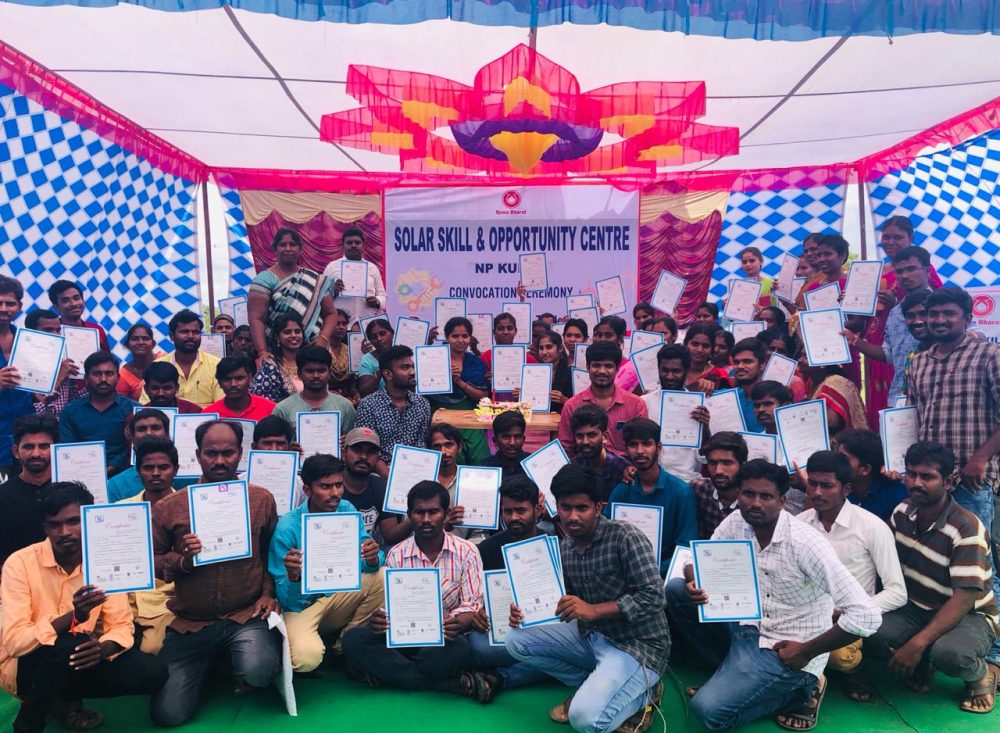Ayana Renewable Power is an Indian independent solar and wind-generation company launched by CDC in 2018. The business supports the development of utility-scale renewable power in parts of South Asia which suffer from power deficits and are more dependent on coal power. Currently, Ayana is developing 1.1 gigawatts (GW) of renewable power capacity across South Asia.
One of Ayana’s priorities is working with and supporting the local communities living and working in its development locations. We worked in partnership with Ayana, the UK’s Department for International Development (DFID) and the Self-Employed Women’s Association (SEWA) on a pilot skills development programme for communities living near Ayana’s new solar powerplant. The programme provides training for potential employment in the solar park – including operations and maintenance skills, as well as digital literacy and job readiness. Recognising the challenges women face in entering employment at the solar plant, due to perceptions about their capability in that environment, the programme was specifically targeted at women.
